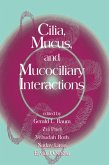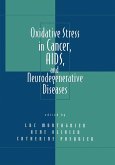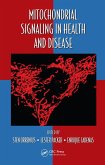The Kinesin Superfamily Handbook (eBook, PDF)
Transporter, Creator, Destroyer
Redaktion: Friel, Claire T.
48,95 €
48,95 €
inkl. MwSt.
Sofort per Download lieferbar

24 °P sammeln
48,95 €
Als Download kaufen

48,95 €
inkl. MwSt.
Sofort per Download lieferbar

24 °P sammeln
Jetzt verschenken
Alle Infos zum eBook verschenken
48,95 €
inkl. MwSt.
Sofort per Download lieferbar
Alle Infos zum eBook verschenken

24 °P sammeln
The Kinesin Superfamily Handbook (eBook, PDF)
Transporter, Creator, Destroyer
Redaktion: Friel, Claire T.
- Format: PDF
- Merkliste
- Auf die Merkliste
- Bewerten Bewerten
- Teilen
- Produkt teilen
- Produkterinnerung
- Produkterinnerung

Bitte loggen Sie sich zunächst in Ihr Kundenkonto ein oder registrieren Sie sich bei
bücher.de, um das eBook-Abo tolino select nutzen zu können.
Hier können Sie sich einloggen
Hier können Sie sich einloggen
Sie sind bereits eingeloggt. Klicken Sie auf 2. tolino select Abo, um fortzufahren.

Bitte loggen Sie sich zunächst in Ihr Kundenkonto ein oder registrieren Sie sich bei bücher.de, um das eBook-Abo tolino select nutzen zu können.
This book brings together current information on the families that make up the kinesin superfamily of molecular motors in one comprehensive text; an ideal reference for reseachers looking to make comparisons between different familiies, for specific information on a family, or simply for an overview of the kinesin superfamily.
- Geräte: PC
- ohne Kopierschutz
- eBook Hilfe
- Größe: 56.49MB
Andere Kunden interessierten sich auch für
![The Kinesin Superfamily Handbook (eBook, ePUB) The Kinesin Superfamily Handbook (eBook, ePUB)]() The Kinesin Superfamily Handbook (eBook, ePUB)48,95 €
The Kinesin Superfamily Handbook (eBook, ePUB)48,95 €![The Structure of Biological Membranes (eBook, PDF) The Structure of Biological Membranes (eBook, PDF)]() The Structure of Biological Membranes (eBook, PDF)231,95 €
The Structure of Biological Membranes (eBook, PDF)231,95 €![Structural Biology of the Complement System (eBook, PDF) Structural Biology of the Complement System (eBook, PDF)]() Structural Biology of the Complement System (eBook, PDF)64,95 €
Structural Biology of the Complement System (eBook, PDF)64,95 €![Cilia, Mucus, and Mucociliary Interactions (eBook, PDF) Cilia, Mucus, and Mucociliary Interactions (eBook, PDF)]() Cilia, Mucus, and Mucociliary Interactions (eBook, PDF)419,95 €
Cilia, Mucus, and Mucociliary Interactions (eBook, PDF)419,95 €![Handbook of Cell-Penetrating Peptides (eBook, PDF) Handbook of Cell-Penetrating Peptides (eBook, PDF)]() Handbook of Cell-Penetrating Peptides (eBook, PDF)66,95 €
Handbook of Cell-Penetrating Peptides (eBook, PDF)66,95 €![Oxidative Stress in Cancer, AIDS, and Neurodegenerative Diseases (eBook, PDF) Oxidative Stress in Cancer, AIDS, and Neurodegenerative Diseases (eBook, PDF)]() Luc MontagnierOxidative Stress in Cancer, AIDS, and Neurodegenerative Diseases (eBook, PDF)66,95 €
Luc MontagnierOxidative Stress in Cancer, AIDS, and Neurodegenerative Diseases (eBook, PDF)66,95 €![Mitochondrial Signaling in Health and Disease (eBook, PDF) Mitochondrial Signaling in Health and Disease (eBook, PDF)]() Mitochondrial Signaling in Health and Disease (eBook, PDF)194,95 €
Mitochondrial Signaling in Health and Disease (eBook, PDF)194,95 €-
-
-
This book brings together current information on the families that make up the kinesin superfamily of molecular motors in one comprehensive text; an ideal reference for reseachers looking to make comparisons between different familiies, for specific information on a family, or simply for an overview of the kinesin superfamily.
Dieser Download kann aus rechtlichen Gründen nur mit Rechnungsadresse in A, B, BG, CY, CZ, D, DK, EW, E, FIN, F, GR, HR, H, IRL, I, LT, L, LR, M, NL, PL, P, R, S, SLO, SK ausgeliefert werden.
Produktdetails
- Produktdetails
- Verlag: Taylor & Francis eBooks
- Seitenzahl: 186
- Erscheinungstermin: 13. Mai 2020
- Englisch
- ISBN-13: 9780429958250
- Artikelnr.: 59482482
- Verlag: Taylor & Francis eBooks
- Seitenzahl: 186
- Erscheinungstermin: 13. Mai 2020
- Englisch
- ISBN-13: 9780429958250
- Artikelnr.: 59482482
- Herstellerkennzeichnung Die Herstellerinformationen sind derzeit nicht verfügbar.
Claire T. Friel earned a BSc in Biochemistry from the University of Glasgow, UK, and carried out her PhD work on protein folding kinetics in the laboratory of Sheena Radford at the University of Leeds, UK. In 2006, she joined the group of Jonathon Howard at the Max Planck Institute of Molecular Cell Biology and Genetics in Dresden, Germany. There, she solved the ATP turnover cycle of the microtubule depolymerising Kinesin-13, MCAK, and developed an interest in the kinesin superfamily of molecular motors. Since 2011, Claire has held the position of Assistant Professor at the University of Nottingham, UK. The research goals of the Friel lab are to understand the relationship between the kinesin motor domain sequence and the many functional properties of the kinesin superfamily and to understand the molecular mechanisms of proteins that regulate microtubule dynamics.
Contents
Acknowledgements....................................................................................................ix
Editor
bio...................................................................................................................xi
List of
Contributors.................................................................................................
xiii
Chapter 1 Introduction to the Kinesin
Superfamily..............................................1
Hannah R. Belsham and Claire T. Friel
Chapter 2 The Kinesin-1 Family: Long-Range
Transporters.............................. 15
David D. Hackney and Alison E. Twelvetrees
Chapter 3 The Kinesin-2 Family:
Transporters................................................... 33
William O. Hancock
Chapter 4 The Kinesin-3 Family: Long-Distance
Transporters.......................... 41
Nida Siddiqui and Anne Straube
Chapter 5 The Kinesin-4
Family.........................................................................
55
Claire T. Friel
Chapter 6 The Kinesin-5 Family: Transporters and
Creators.............................65
Mary Popov, Alina Goldstein-Levitin and Larisa Gheber
Chapter 7 The Kinesin-6
Family.........................................................................83
Claire T. Friel
Chapter 8 The Kinesin-8
Family.........................................................................87
Tianyang Liu, Alejandro Peña, Fiona Shilliday, and
Carolyn A. Moores
Chapter 9 The Kinesin-13 Family: Specialist
Destroyers.................................. 101
Julie P. Welburn and Claire T. Friel
Chapter 10 The Kinesin-14
Family......................................................................
115
Marcus Braun, Stefan Diez and Zdenek Lansky
Chapter 11 The Kinesin-15
Family......................................................................
135
Hauke Drechsler, Jaspreet Singh Grewal and Andrew D. McAinsh
Chapter 12 The Kinesin-16
Family......................................................................
155
Hanan M. Alghamdi and Claire T. Friel
Chapter 13 Other Kinesin
Families.....................................................................
161
Claire T. Friel
Chapter 14 Summary and Future
Perspectives.................................................... 165
Claire T. Friel
Index.......................................................................................................................
167
Acknowledgements....................................................................................................ix
Editor
bio...................................................................................................................xi
List of
Contributors.................................................................................................
xiii
Chapter 1 Introduction to the Kinesin
Superfamily..............................................1
Hannah R. Belsham and Claire T. Friel
Chapter 2 The Kinesin-1 Family: Long-Range
Transporters.............................. 15
David D. Hackney and Alison E. Twelvetrees
Chapter 3 The Kinesin-2 Family:
Transporters................................................... 33
William O. Hancock
Chapter 4 The Kinesin-3 Family: Long-Distance
Transporters.......................... 41
Nida Siddiqui and Anne Straube
Chapter 5 The Kinesin-4
Family.........................................................................
55
Claire T. Friel
Chapter 6 The Kinesin-5 Family: Transporters and
Creators.............................65
Mary Popov, Alina Goldstein-Levitin and Larisa Gheber
Chapter 7 The Kinesin-6
Family.........................................................................83
Claire T. Friel
Chapter 8 The Kinesin-8
Family.........................................................................87
Tianyang Liu, Alejandro Peña, Fiona Shilliday, and
Carolyn A. Moores
Chapter 9 The Kinesin-13 Family: Specialist
Destroyers.................................. 101
Julie P. Welburn and Claire T. Friel
Chapter 10 The Kinesin-14
Family......................................................................
115
Marcus Braun, Stefan Diez and Zdenek Lansky
Chapter 11 The Kinesin-15
Family......................................................................
135
Hauke Drechsler, Jaspreet Singh Grewal and Andrew D. McAinsh
Chapter 12 The Kinesin-16
Family......................................................................
155
Hanan M. Alghamdi and Claire T. Friel
Chapter 13 Other Kinesin
Families.....................................................................
161
Claire T. Friel
Chapter 14 Summary and Future
Perspectives.................................................... 165
Claire T. Friel
Index.......................................................................................................................
167
Contents
Acknowledgements....................................................................................................ix
Editor
bio...................................................................................................................xi
List of
Contributors.................................................................................................
xiii
Chapter 1 Introduction to the Kinesin
Superfamily..............................................1
Hannah R. Belsham and Claire T. Friel
Chapter 2 The Kinesin-1 Family: Long-Range
Transporters.............................. 15
David D. Hackney and Alison E. Twelvetrees
Chapter 3 The Kinesin-2 Family:
Transporters................................................... 33
William O. Hancock
Chapter 4 The Kinesin-3 Family: Long-Distance
Transporters.......................... 41
Nida Siddiqui and Anne Straube
Chapter 5 The Kinesin-4
Family.........................................................................
55
Claire T. Friel
Chapter 6 The Kinesin-5 Family: Transporters and
Creators.............................65
Mary Popov, Alina Goldstein-Levitin and Larisa Gheber
Chapter 7 The Kinesin-6
Family.........................................................................83
Claire T. Friel
Chapter 8 The Kinesin-8
Family.........................................................................87
Tianyang Liu, Alejandro Peña, Fiona Shilliday, and
Carolyn A. Moores
Chapter 9 The Kinesin-13 Family: Specialist
Destroyers.................................. 101
Julie P. Welburn and Claire T. Friel
Chapter 10 The Kinesin-14
Family......................................................................
115
Marcus Braun, Stefan Diez and Zdenek Lansky
Chapter 11 The Kinesin-15
Family......................................................................
135
Hauke Drechsler, Jaspreet Singh Grewal and Andrew D. McAinsh
Chapter 12 The Kinesin-16
Family......................................................................
155
Hanan M. Alghamdi and Claire T. Friel
Chapter 13 Other Kinesin
Families.....................................................................
161
Claire T. Friel
Chapter 14 Summary and Future
Perspectives.................................................... 165
Claire T. Friel
Index.......................................................................................................................
167
Acknowledgements....................................................................................................ix
Editor
bio...................................................................................................................xi
List of
Contributors.................................................................................................
xiii
Chapter 1 Introduction to the Kinesin
Superfamily..............................................1
Hannah R. Belsham and Claire T. Friel
Chapter 2 The Kinesin-1 Family: Long-Range
Transporters.............................. 15
David D. Hackney and Alison E. Twelvetrees
Chapter 3 The Kinesin-2 Family:
Transporters................................................... 33
William O. Hancock
Chapter 4 The Kinesin-3 Family: Long-Distance
Transporters.......................... 41
Nida Siddiqui and Anne Straube
Chapter 5 The Kinesin-4
Family.........................................................................
55
Claire T. Friel
Chapter 6 The Kinesin-5 Family: Transporters and
Creators.............................65
Mary Popov, Alina Goldstein-Levitin and Larisa Gheber
Chapter 7 The Kinesin-6
Family.........................................................................83
Claire T. Friel
Chapter 8 The Kinesin-8
Family.........................................................................87
Tianyang Liu, Alejandro Peña, Fiona Shilliday, and
Carolyn A. Moores
Chapter 9 The Kinesin-13 Family: Specialist
Destroyers.................................. 101
Julie P. Welburn and Claire T. Friel
Chapter 10 The Kinesin-14
Family......................................................................
115
Marcus Braun, Stefan Diez and Zdenek Lansky
Chapter 11 The Kinesin-15
Family......................................................................
135
Hauke Drechsler, Jaspreet Singh Grewal and Andrew D. McAinsh
Chapter 12 The Kinesin-16
Family......................................................................
155
Hanan M. Alghamdi and Claire T. Friel
Chapter 13 Other Kinesin
Families.....................................................................
161
Claire T. Friel
Chapter 14 Summary and Future
Perspectives.................................................... 165
Claire T. Friel
Index.......................................................................................................................
167







